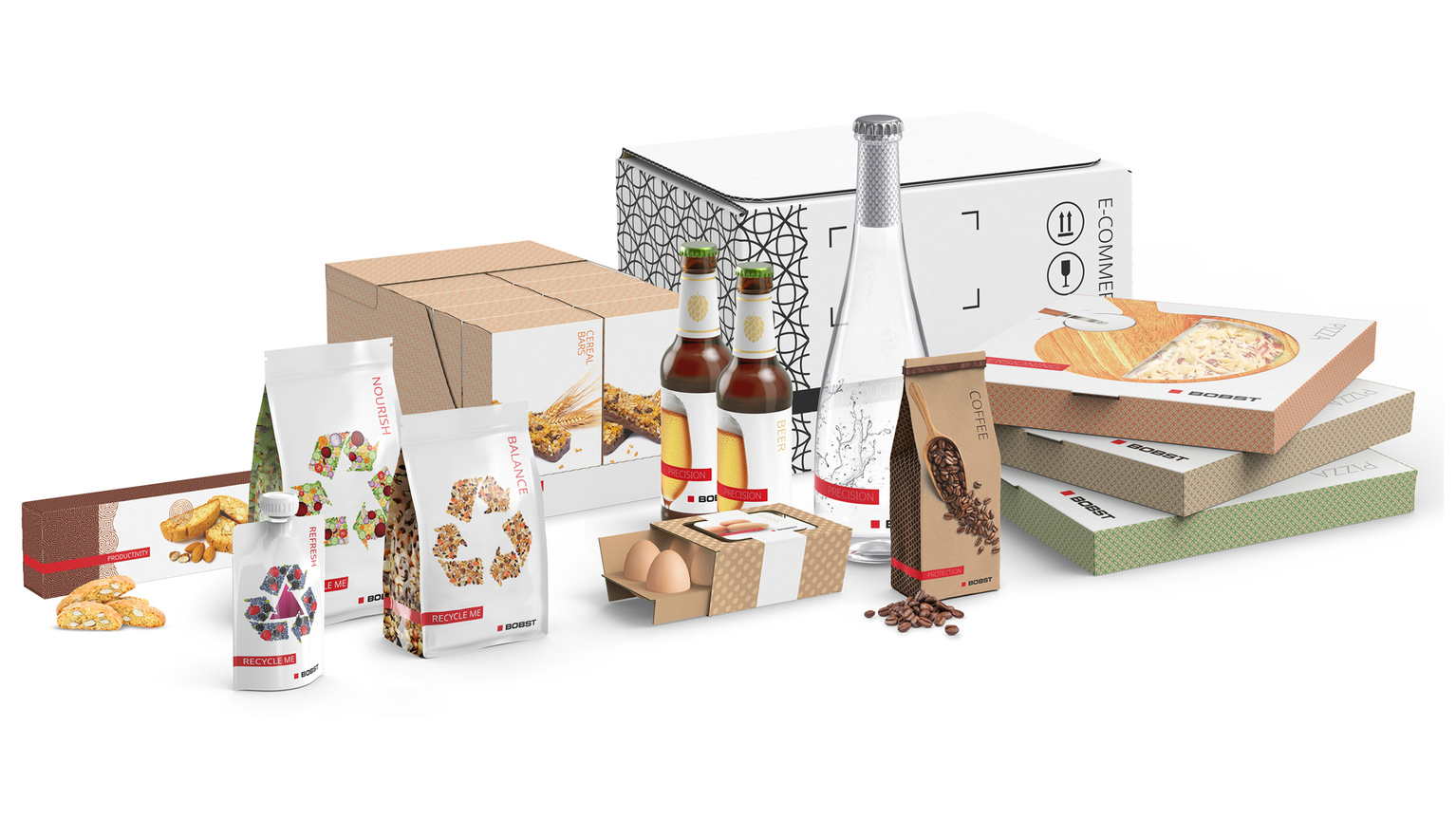Article 1: Substrate shortages
In this series of articles, we will examine some of the key issues facing the packaging industry, including the availability of component machine parts and the lack of skilled manpower. In this first article, we will focus on substrate supply, which has become an acute issue in the global supply chain.
“The costs of raw materials have undergone an extraordinary and unforeseen acceleration due to equally unexpected global phenomena.”
This quote from Acimga, the association of Italian manufacturers of machinery for the graphic, paper and converting industry, summarizes the situation facing the packaging industry today. The COVID-19 pandemic, the conflict in Ukraine, price inflation and other factors have resulted in a variety of choke points throughout the global supply chain over the last two years.
The availability and price of raw materials is a particular issue. For example, the price of materials often used for flexible packaging has continued to increase in recent months, accelerated by the spike in energy costs. The demand for aluminum and polyethylene – two key raw materials for high barrier flexible packaging – has now outstripped supply for many markets.
The prices of 12-micron PET (polyethylene terephthalate) and 20-micron BOPP (Biaxially oriented polypropylene) – both very widely used for packaging foods – are at record levels. At the end of 2021, the cost of 20-micron BOPP was 80% higher than a year previously (Flexible Packaging Europe, 2022). Meanwhile, an estimated 80 to 85% of all polyethylene (PE) and polypropylene (PP) production in the US was affected by severe winter storms in 2021 (Plastics Today, 2021), which is still having a knock-on effect.
In the labels industry meanwhile, growing paper shortages are starting to have a considerable impact on the supply of labels, which will ultimately have a knock-on impact on brand owners and their respective consumers.
These substrate shortages have been exacerbated by a significant increase in consumer demand in a post-COVID restrictions world.
For Brand Owners and converters, all of this means more complex processes, squeezed profit margins, longer lead-times and impact on production. Many are even unable to fulfil existing orders at agreed prices due to the sudden and severe nature of the price rises.
At BOBST, we fully understand the pressures and difficulties everyone is facing across the industry. While we cannot impact the source prices of substrates, what we can do is help to manage a wide range of substrates and minimize waste to ensure business continuity.
How can our solutions help? Well, BOBST oneECG (Extended Color Gamut) technology for example, is deployed across analogue and digital printing processes in label, flexible packaging, folding carton and corrugated board industries. ECG is a process to digitalize color matching, and therefore results in minimal waste of substrates, inks and water as well as reducing energy consumption needed for drying.
BOBST has developed equipment designed to operate across the globe and therefore able to support a wide range of substrates helping converters who need to switch to new suppliers.
Quality control is another essential element of better substrate management. Poor packaging quality received by the packers, poor package quality received by retailers, and mistakes in packages produced for brands, all lead to unnecessary and avoidable waste. In today’s environment, this kind of waste just isn’t affordable and could make the difference between success and failure.
BOBST’s oneINSPECTION, an integrated set of BOBST Quality Control solutions, enables end-to-end quality control solutions, closing the loop from artwork design to the final product reducing production recalls and resulting waste.
BOBST was the first company to develop, and then to perfect, an innovative quality control system that enables manufacturers to obtain zero-fault boxes. ACCUCHECK allows any defects on cardboard blanks to be checked when they first enter the BOBST folder-gluer - it is compatible with the latest MASTERFOLD 75|110 and EXPERTFOLD 50|80|110. ACCUCHECK is also available as a standard feature in the new DIGITAL MASTER series 340/510 for label production.
Thanks to its inline flexo unit than can be integrated into the basic configuration to perform inline priming, the DIGITAL MASTER series can also be easily adapted to different kinds of substrate, enabling converters to be very flexible with substrates as needed.
BOBST’s Premium Gap Control meanwhile – winner of the FEFCO Gold Award for Best Innovation – is a system controlling the folding process of all finished boxes at full production speed. And the BOBST Digital Inspection Tables provide a quality center that enhances the operator’s skills with augmented reality overlays while gathering photographic evidence for audit, ensuring trust and top production quality for corrugated packaging production.
And the MASTERLINE DRO – a new rotary die-cutting solution – and the MASTERFLEX-HD, a flexo printing press, feature the pioneering new Start & Go System for quality control and ultra-high precision register setting, which means just a few sheets are needed to set a new job. Start & Go provides fully automatic set-up multicolor jobs with automatic compensation of cliché irregularity with only 11 sheets.
These are just some examples of solutions available today that can help minimize waste and mitigate the ongoing substrate availability issues. In the next article, we will look at another pressing issue facing the industry – the availability and cost of machine parts – along with some examples of what we are doing to mitigate this.
While this is a stormy moment in the global environment, we are confident that together as an industry, we will find a way to navigate through it!
www.bobst.com









